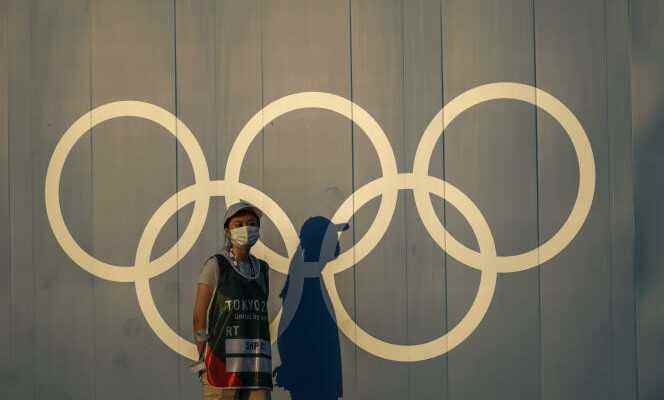Mistreated by the Covid-19 pandemic and weighed down by a series of scandals, the Tokyo Olympic and Paralympic Games, organized despite strong opposition from the Japanese, show a dismal financial record. Officially set at 1,423.8 billion yen (plus 10 billion euros) on June 21 by the Tokyo 2020 organizing committee, the final bill for the event organized in the heart of the torrid summer of 2021 reached double the initial estimate, 55% of which is borne by Japanese taxpayers.
Unsurprisingly, finances have suffered from the one-year postponement, due to the coronavirus pandemic, of the Olympic events originally scheduled for the summer of 2020. Covid-19 prevention measures, such as athlete screening, have cost 246 million euros.
Added to this were cost overruns. The National Stadium, including the opening and closing ceremonies of the Games, cost 1.1 billion euros, or 190 million more than expected. The absence of spectators imposed for health reasons deprived the organizers of 632 million euros expected from ticket sales.
In terms of revenue, the organizers were able to count on record support from Japanese partners (2.6 billion euros). In addition, they received 351 million euros in insurance for the postponement of competitions, or even 611 million euros in contribution from the International Olympic Committee (IOC).
Finally, the bill appears slightly reduced compared to the December 2020 estimate, which forecast expenditure amounting to 11.9 billion euros. Tokyo 2020 took on €4.5 billion of the total costs. The rest is shared between the City of Tokyo, up to 4.2 billion euros and the central government (1.3 billion).
Repeated scandals
The announcement of the balance sheet was little covered by the Japanese media. However, the question could have political consequences. “Much of the funds used come from taxpayers, but the balance sheet does not give any details of the expenditure”, regrets Kiyoshi Abe, of Kwansei Gakuin University. Also author of The Sociology of the Tokyo Olympics. Crisis and celebration in 2020 Japan (Commons, 2020, untranslated), the researcher also deplores the lack of explanation on what the Tokyo Olympics, organized in the midst of a pandemic, really brought to society.
“The city of Tokyo will have to precisely assess its expenses and provide a clear explanation to the inhabitants of the capital and the country”adds Naofumi Masumoto, a specialist in Olympic studies at the Tokyo Metropolitan University.
You have 42.29% of this article left to read. The following is for subscribers only.
